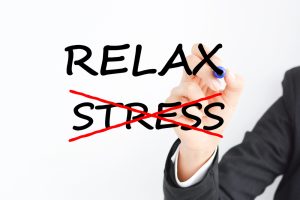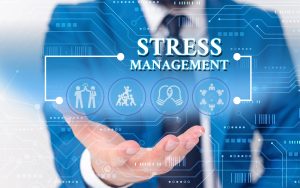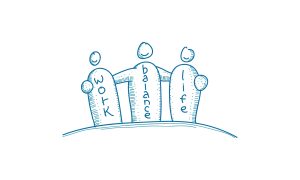By – James M. Katz, BA
In today’s fast-paced world, stress has become a widespread issue affecting people’s health and well-being. As a result, the role of a stress management consultant has gained significant importance. These professionals help individuals and organizations develop effective strategies to cope with stress and improve overall quality of life. Stress management consultants use their expertise to provide personalized stress management plans and teach valuable stress reduction techniques.
This comprehensive guide explores the world of stress management consulting. It covers the growing need for these specialists, their core competencies, and the various types of stress management consultants. The article also delves into the consultation process, the integration of technology in stress management, and career prospects in this field. By the end, readers will have a clear understanding of what a stress management consultant does and how they can make a positive impact on people’s lives.
The Growing Need for a Stress Management Consultant?
In today’s fast-paced world, the demand for stress management consultants has significantly increased. These professionals play a crucial role in helping individuals and organizations cope with the mounting pressures of modern life.
Statistics on workplace stress
Recent studies have revealed alarming statistics about workplace stress. According to the American Psychological Association (APA), 77% of Americans reported being stressed out by work in the last month. Even more concerning, 57% of workers indicated they experienced burnout due to work-related stress. The prevalence of stress in the American workplace has become so high that most workers have accepted it as a way of life.
The impact of workplace stress extends beyond individual well-being. It has a substantial economic cost, with workplace stress having a USD 300.00 billion annual price tag in the U.S. alone. This staggering figure underscores the urgent need for effective stress management strategies and the expertise of stress management consultants.
Impact of chronic stress on health and productivity
Chronic stress, often referred to as toxic stress, occurs when the body’s stress response is activated too often or for extended periods. This persistent state of stress can have severe consequences on both physical and mental health. It increases the risk of chronic illnesses, infections, heart disease, mental health disorders, and addictive behaviors.
The effects of chronic stress are not limited to personal health; they also significantly impact workplace productivity. Employees lose over 5 work hours per week thinking about stressors, and 1 million Americans miss work each day due to symptoms of workplace stress. This loss of productivity translates to substantial economic losses, with work-related stress costing the U.S. USD 190.00 billion in healthcare expenditures annually.
Emergence of stress management as a specialized field
The growing recognition of the detrimental effects of stress has led to the emergence of stress management as a specialized field. Stress management consultants have become essential in helping individuals and organizations develop effective coping strategies and stress reduction techniques.
These professionals provide personalized stress management plans, taking into account the unique stressors and triggers of each individual or workplace. They offer a range of services, including stress management coaching, stress reduction programs, and stress management courses. Their expertise helps clients develop crucial stress management skills and implement effective stress management strategies.
As the demand for stress relief continues to grow, the role of stress management consultants becomes increasingly vital. They serve as stress management experts, offering guidance and support to those struggling with the pressures of modern life. By providing specialized stress management services, these professionals contribute to improving both individual well-being and organizational productivity.
Core Competencies of a Stress Management Consultant
Stress management consultants possess a unique set of skills and expertise that enable them to help individuals and organizations effectively cope with stress. These professionals play a crucial role in promoting healthier, more balanced lifestyles by providing personalized solutions and teaching valuable coping methods to their clients.
Stress assessment and analysis
One of the primary competencies of a stress management consultant is the ability to conduct comprehensive stress assessments. These assessments involve identifying sources of stress, understanding their impact on an individual’s life, and analyzing the effectiveness of current coping mechanisms. Stress management consultants use various tools and techniques to measure stress levels accurately.
For instance, they may employ heart rate variability (HRV) analysis, which involves recording the variation in time between consecutive heartbeats. HRV is controlled by the autonomic nervous system and can provide insights into an individual’s stress response. Additionally, consultants may use electroencephalography (EEG) to measure brainwaves, as research suggests that brainwaves can be an accurate way to measure stress response.
Another valuable tool in a consultant’s arsenal is the Perceived Stress Scale (PSS), a questionnaire developed in 1983 to assess the amount of stress an individual feels they’re under. This self-reported measure helps consultants gain insights into their clients’ emotional and mental states.
Customized intervention strategies
Based on the results of stress assessments, stress management consultants develop personalized stress management plans tailored to each client’s unique circumstances and goals. These plans take into account specific stressors, triggers, and objectives, providing a roadmap for effectively managing stress in daily life.
Stress management consultants employ a variety of evidence-based treatments and techniques to help their clients. Common approaches include mindfulness meditation, yoga, and physical activity, which have been associated with significant reductions in self-reported and physiological measures of stress. However, it’s important to note that these interventions often have high levels of heterogeneity in treatment effects, indicating that not all individuals may benefit equally from a given intervention.
To address this challenge, some stress management consultants may adopt a personalized (N-of-1) trial approach. This method involves evaluating the outcomes of different interventions specific to an individual, allowing consultants to identify the most effective stress management techniques for each client.
Ongoing support and evaluation
Effective stress management consulting goes beyond providing initial strategies; it involves integrating stress management techniques into daily life and offering continuous support. Stress management consultants work closely with their clients to implement coping strategies, monitor progress, and make necessary adjustments to the stress management plan.
To assess the lasting impact of stress management interventions, consultants implement long-term follow-up strategies. These may include regular check-ins, progress evaluations, and adjustments to the stress management plan as needed. By providing ongoing support and evaluation, stress management consultants help their clients develop resilience, maintain a positive mindset, and cultivate healthy habits that support overall well-being.
Types of Stress Management Consultants
Stress management consultants come in various forms, each specializing in different areas and catering to specific needs. Understanding these different types can help individuals and organizations choose the right consultant for their stress management requirements.
Corporate consultants
Corporate stress management consultants focus on helping businesses create a healthier work environment and improve employee well-being. These professionals offer a range of services designed to address workplace stress and enhance productivity.
Corporate consultants often provide coaching, classes, and workshops to foster a culture of wellness within organizations. They may offer live, instructor-led classes both onsite and virtually, covering topics such as mindfulness-based stress reduction, meditation, breathwork, yoga, and art therapy. These consultants work closely with companies to develop comprehensive stress management programs that complement existing wellness initiatives or form part of a broader annual wellness strategy.
One of the key advantages of corporate stress management consultants is their ability to tailor programs to the specific needs of each organization. They often assign dedicated account managers who follow a time-tested roadmap for launching new programs or enhancing existing ones. These account managers ensure that initiatives are implemented on schedule and can make ongoing adjustments as needed.
Healthcare-based consultants
Healthcare-based stress management consultants specialize in addressing stress within medical settings and improving patient experiences. These professionals play a crucial role in enhancing patient engagement and implementing patient-centered care practices.
Healthcare consultants often work closely with healthcare providers to develop and implement effective patient engagement and experience programs. They may offer services such as patient experience audits, implementation of digital health tools, and strategies to improve patient-provider interactions. Their expertise can lead to measurable improvements in patient satisfaction scores and overall quality of healthcare services. As show from our program in Stress Management Consulting.
Some healthcare-based stress management consultants focus on specific areas, such as enhancing member and patient experiences throughout the wellness journey. Others may specialize in developing cultures that are appreciated by both healthcare teams and patients, recognizing the increasing influence of healthcare consumers in the age of technology.
Independent practitioners
Independent stress management consultants work directly with individuals, offering personalized solutions to help clients manage their stress effectively. These professionals often have diverse backgrounds and may combine various approaches to stress management.
Independent practitioners typically provide one-on-one sessions tailored to each client’s unique goals and challenges. They may teach relaxation techniques, coping methods, and stress reduction strategies. Some independent consultants specialize in specific areas, such as mental performance consulting for athletes and professionals, helping clients address anxiety, improve sleep and recovery, and set goals.
These consultants often draw from their personal experiences with stress management, either through formal education in psychology or stress management, or through their own journey of overcoming stress using various techniques and lifestyle changes. Their approach may involve a combination of evidence-based treatments, such as cognitive-behavioral therapy, mindfulness practices, and lifestyle modifications.
By understanding the different types of stress management consultants available, individuals and organizations can make informed decisions when seeking professional help to address stress-related challenges and improve overall well-being.
The Stress Management Consultation Process
The stress management consultation process is a structured approach that stress management consultants use to help clients effectively cope with stress and improve their overall well-being. This process typically involves several key steps that allow consultants to assess, plan, and implement personalized stress management strategies.
Initial assessment
The first step in the stress management consultation process is conducting a comprehensive initial assessment. During this phase, stress management consultants employ various tools and techniques to evaluate the client’s current stress levels and identify specific stressors. One commonly used method is the Perceived Stress Scale (PSS), a questionnaire developed in 1983 to assess the amount of stress an individual feels they’re under. This self-reported measure helps consultants gain insights into their clients’ emotional and mental states.
In addition to self-report questionnaires, consultants may use more advanced techniques such as heart rate variability (HRV) analysis. This method involves recording the variation in time between consecutive heartbeats, which is controlled by the autonomic nervous system and can provide valuable insights into an individual’s stress response. Some consultants may also employ electroencephalography (EEG) to measure brainwaves, as research suggests that brainwaves can be an accurate way to measure stress response.
Goal setting and action planning
Once the initial assessment has been completed, stress management consultants work with their clients to set specific, measurable, attainable, relevant, and time-bound (SMART) goals. This approach helps to bring clarity, drive motivation, and increase the chances of success in managing stress. By setting SMART goals, clients can get a clear picture of what they need to do within a given timeframe.
During this phase, consultants help clients prioritize their goals and develop a comprehensive action plan. This plan outlines the steps needed to achieve the set goals and includes specific stress management techniques and coping strategies tailored to the client’s unique needs and circumstances. These may include mindfulness meditation, yoga, physical activity, or other evidence-based treatments that have been associated with significant reductions in self-reported and physiological measures of stress.
Implementation and follow-up
The final phase of the stress management consultation process involves implementing the action plan and providing ongoing support and evaluation. Stress management consultants work closely with their clients to integrate stress management techniques into daily life and offer continuous coaching support. This may involve regular check-ins, progress evaluations, and adjustments to the stress management plan as needed.
To assess the lasting impact of stress management interventions, consultants implement long-term follow-up strategies. These strategies help clients develop resilience, maintain a positive mindset, and cultivate healthy habits that support overall well-being. Some consultants may adopt a personalized (N-of-1) trial approach, which involves evaluating the outcomes of different interventions specific to an individual. This method allows consultants to identify the most effective stress management techniques for each client and make necessary adjustments to the plan over time.
Integrating Technology in Stress Management Consulting
The field of stress management consulting has seen a significant transformation with the integration of technology. Stress management consultants now have access to a wide array of digital tools and platforms that enhance their ability to assess, monitor, and address stress-related issues in their clients. These technological advancements have revolutionized the way stress management services are delivered, making them more accessible, personalized, and effective.
Digital stress tracking tools
One of the key innovations in stress management consulting is the use of digital stress tracking tools. These tools allow consultants to gather real-time data on their clients’ stress levels and physiological responses. For instance, wearable devices equipped with sensors can continuously measure heart rate variability (HRV), which is considered a reliable indicator of stress levels. Some devices, like the Empatica E4 and Fitbit, can even measure electrical changes in sweat glands that respond to stress and emotional arousal.
These digital tools provide stress management consultants with valuable insights into their clients’ stress patterns and triggers. By analyzing this data, consultants can develop more personalized stress management plans and offer targeted interventions. For example, if a client’s stress levels consistently spike during certain times of the day, the consultant can recommend specific stress reduction techniques for those periods.
Virtual coaching platforms
The rise of virtual coaching platforms has made stress management services more accessible and convenient for clients. These platforms allow stress management consultants to provide support remotely, enabling clients to receive guidance from the comfort of their homes. Virtual coaching leverages various digital communication tools, making it a budget-friendly alternative to traditional in-person sessions.
Many virtual coaching platforms incorporate features such as video calls, instant messaging, and progress tracking tools. These features enable stress management consultants to maintain regular contact with their clients, provide real-time support, and monitor their progress over time. Some platforms even offer AI-powered coaching assistants that can provide additional support between sessions with human consultants.
Stress management apps and wearables
Stress management apps and wearables have become increasingly popular tools in the consultant’s arsenal. These technologies offer clients continuous support and guidance in managing their stress levels. Apps like Headspace, Calm, and MyLife provide users with a variety of stress management tools, including guided meditations, breathing exercises, and sleep improvement techniques.
Wearable devices, such as smart watches and fitness trackers, have also evolved to include stress management features. For example, some devices can detect when a user’s stress levels are rising and prompt them to engage in stress-reducing activities, such as deep breathing exercises. These real-time interventions can help clients develop better stress management skills and coping strategies throughout their day.
By integrating these technological tools into their practice, stress management consultants can offer more comprehensive and personalized services to their clients. The combination of expert guidance and cutting-edge technology creates a powerful approach to stress management, empowering individuals to take control of their stress levels and improve their overall well-being.
Career Prospects for Stress Management Consultants
Job outlook and growth potential
The career prospects for stress management consultants are promising, with a growing demand for mental health professionals nationwide. The American Psychological Association (APA) Trends for 2024 Report highlights the need for greater access to mental health services, as 90% of respondents believe there is a mental health crisis in the United States. This increasing awareness of mental health issues has a substantial impact on the job outlook for stress management consultants.
The job outlook for mental health counselors and related allied health professionals is projected to grow 18 percent by 2032, which is much faster than the average for other occupations. This rapid growth is driven by the gaps in care and the increasing recognition of the importance of mental health and stress management in overall well-being.
Salary expectations
Stress management consultants can expect competitive salaries, with potential for growth as they gain experience and specialization. According to recent data, the estimated total pay for a Stress Management Counselor is USD 90472.00 per year, with an average base salary of USD 67608.00 per year. The additional pay, which may include bonuses, commissions, and profit sharing, is estimated at USD 22864.00 per year.
It’s worth noting that salaries can vary based on factors such as location, experience, and specialization. For instance, the median pay for mental health counselors is around USD 53710.00, with higher compensation available for professionals with advanced training and certification.
Opportunities for specialization
Stress management consultants have various opportunities for specialization, which can lead to increased earning potential and career growth. Some areas of specialization include:
1. Corporate stress management: Consultants can focus on helping businesses create healthier work environments and improve employee well-being. This may involve developing comprehensive stress management programs and offering coaching, classes, and workshops.
2. Healthcare-based consulting: Specializing in addressing stress within medical settings and improving patient experiences can be a lucrative career path. Healthcare consultants may work on enhancing patient engagement and implementing patient-centered care practices.
3. Independent practice: Some stress management consultants choose to work directly with individuals, offering personalized solutions and one-on-one sessions. This path allows for flexibility and the opportunity to develop a unique approach to stress management.
4. Technology integration: With the growing importance of digital tools in stress management, consultants can specialize in integrating technology into their practice. This may involve using digital stress tracking tools, virtual coaching platforms, and stress management apps.
As the field of stress management continues to evolve, consultants who stay updated with the latest research and techniques will have the best opportunities for career advancement and specialization. The increasing focus on mental health and well-being in various sectors, from corporate to healthcare, suggests a bright future for stress management consultants who are willing to adapt and grow with the changing landscape of mental health services.
Conclusion
The field of stress management consulting has seen significant growth, driven by the increasing awareness of mental health issues and the need for effective coping strategies. Stress management consultants play a crucial role in helping individuals and organizations deal with the pressures of modern life. Their expertise in assessing stress levels, developing personalized interventions, and providing ongoing support has a positive impact on both personal well-being and workplace productivity. As technology continues to evolve, these professionals are embracing new tools and platforms to enhance their services and reach a wider audience.
Looking ahead, the future looks bright for stress management consultants. The growing demand for mental health services, coupled with the rising recognition of stress-related issues in various sectors, points to promising career prospects in this field. As stress management consultants continue to adapt to changing needs and incorporate new techniques, they will remain essential in promoting healthier, more balanced lifestyles. Their work not only helps individuals cope with stress but also contributes to creating more supportive and productive environments in workplaces and communities.
After reviewing and researching how a stress management consultant can help communities, hospitals, businesses deal with the ever-growing issue of stress, if you’re interested AIHCP offers an online certification program in Stress Management Consulting. It requires one to complete several online stress management consultant courses. Once complete you would be a certified Stress Management Consultant. For full details on the certification program in Stress Management, please visit our page here.
FAQs
- What are the primary strategies included in the 5 A’s of stress management? The 5 A’s of stress management include Avoid, Alter, Adapt, Accept, and Active. These strategies help in dealing with stressors that are both unavoidable, like personal tragedies, and those that stem from daily routines. It involves changing your approach to stressful situations, adapting to changes, accepting circumstances beyond your control, and staying physically active to manage stress effectively.
- How can one become a stress management consultant? To become a stress management consultant, one must complete a specialized educational program that prepares individuals for this field. These programs typically require at least 225 hours of lecture and study. Candidates must also provide proof of successful completion of such a program to be certified.
- What are the 4 A’s of stress management? The 4 A’s of stress management are Avoid, Alter, Adapt, and Accept. These represent different strategies one might use to handle stress, recognizing that individual responses to stress vary, and no single method works for everyone.
- What is the primary function of stress management? The primary function of stress management is to offer various techniques that aid individuals in handling stress and adversities in life more effectively. It involves understanding and utilizing different methods to maintain a balanced and healthier lifestyle, as stress is a natural response to challenging situations.
Research Articles:
Psychological stress among health care professionals during the 2019 novel coronavirus disease Outbreak: Cases from online consulting customers. Yarong Ma, Et Al. Intensive and Critical Care Nursing Volume 61, December 2020, 102905
Access link here
Behavioral stress recovery management intervention for people with high levels of perceived stress: A randomized controlled trial. Almén, Niclas Et Al. International Journal of Stress Management. 2020 27(2), 183–194.
Access link here
Stress Management in the Modern Workplace and the Role of Human Resource Professionals. Tran, C. T. H., Et Al. Business Ethics and Leadership, (2020). 4(2), 26-40.
Access link here
Stress management interventions for college students: A systematic review and meta-analysis. Amanvermez, Y., Et Al. (2023). Clinical Psychology: Science and Practice, 30(4), 423–444.
Access link here

 When an individual faces a perceived threat, the hypothalamus, a small region at the base of the brain, sets off an alarm system in the body . This activation initiates the stress response, which involves the sympathetic-adreno-medullary (SAM) axis and the hypothalamic-pituitary-adrenal (HPA) axis.
When an individual faces a perceived threat, the hypothalamus, a small region at the base of the brain, sets off an alarm system in the body . This activation initiates the stress response, which involves the sympathetic-adreno-medullary (SAM) axis and the hypothalamic-pituitary-adrenal (HPA) axis.
 To conduct a stress audit effectively, organizations can follow these steps:
To conduct a stress audit effectively, organizations can follow these steps:


